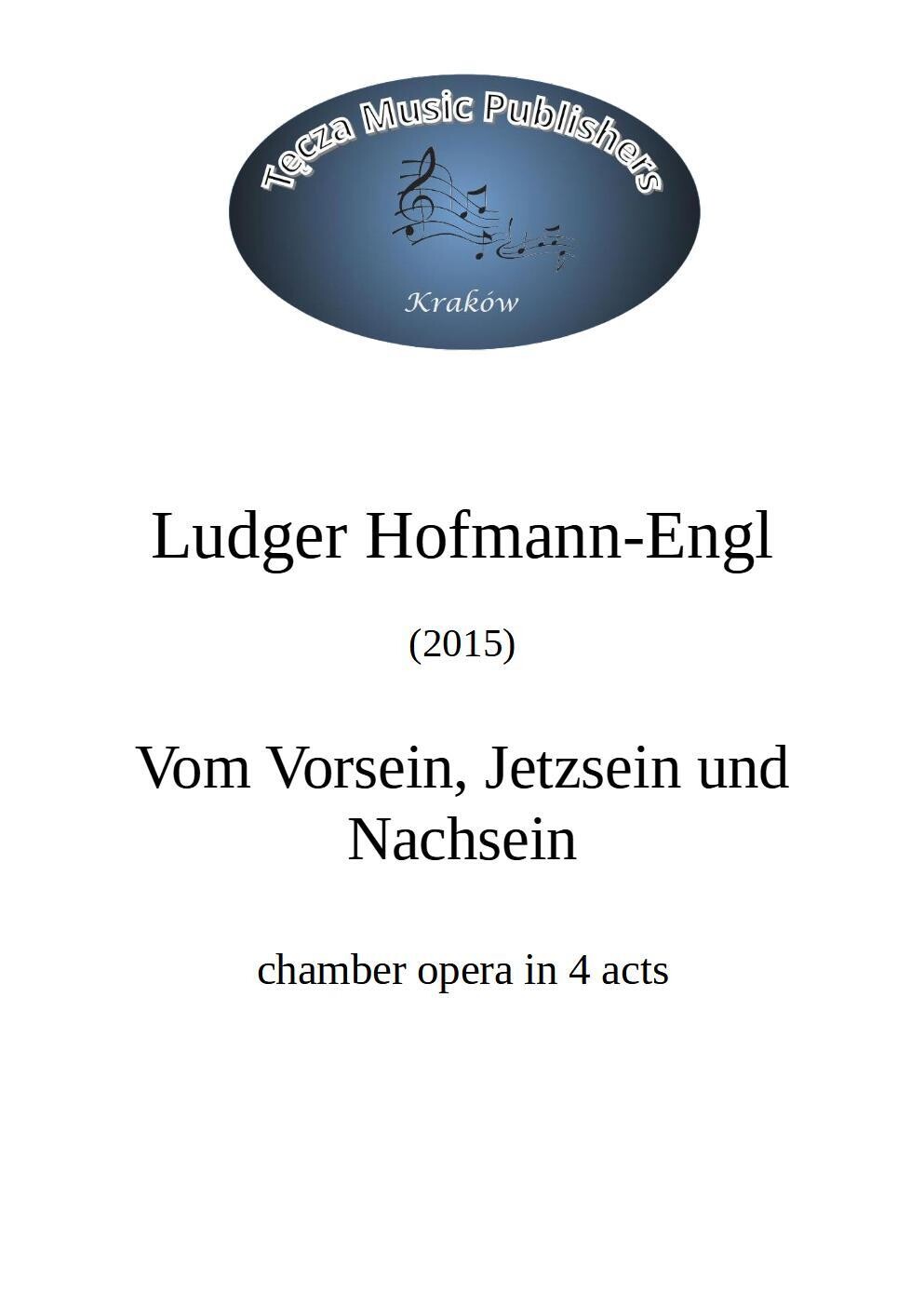Vom Vorsein, Jetztsein und Nachsein
$56.00
Price incl. VAT (23%) $10.47
In stock
Product Details
Electronic Realization at: YouTube
Parts available on request.
Synopsis: During Act 1 we hear the female voice lamenting the fact that she acquired language which has resulted in her feeling disenfranchised from nature and also from her true being. Her great challenge is to express in words what in words cannot be said. Act 2 opens with the male voice formulating meaningless syllables and word fragments. The man is clearly happy with the stage he finds himself in. A speaker appears on stage and quotes from the critique of practical reason by Kant the categorical imperative ( Act only according to that maxim whereby you can at the same time will that it should become a universal law without contradiction). Initially, the male singer does not respond to this event. However, as the speaker keeps repeating the words, the meaningless syllables of the male voice morph in words more and more closely related to the words of the speaker, until the male singer too recites the categorical imperative. In Act 3 we can observe the man as he is making happily use of his new language skills with him ordering the world around him. Reflecting upon his past, he feels that he used to live like an animal without meaning and structure. Only now he knows about true happiness but he admits the existence of challenges as well. At the end of this act, the male singer hears the female singer reciting the words “como viciá” (Portuguese for “like (the flower) vicia” which symbolizes paralysis. “Come viciá-la” can be used as “How addictive!”). After hearing this phrase the man’s spirit declines to the point where he looses all sense of purpose and meaning. Act 4 opens in a very similar mode to act 1 except that now it is not the woman lamenting her fate but the male singer. As he is now lamenting his situation the female singer enters the stage (without both of them being able to see each other yet). She can hear herself in the words of the male singer and wonders whether she is talking to herself. The male singer hearing her is perplexed too. After some time they can see each other and realize that they do understand each other and this because both can speak. They conclude that their sufferings were necessary to find each other. They reason that the stage of not-speaking was the “before-being” to the stage of speaking and that their stage now is the “after-being” of this second stage. Holding each others hands they walk off stage confirming to each other that this final stage is “now-being”. Once the singers have left, dancers carry the speaker back onto the stage. The dancers dance around the speaker with one of the dancers whispering something into the ear of the speaker. The dancers leave and the speaker keeps repeating “Der Name” (German for “The name” in the Hebrew sense of Hashem ( הַשֵּׁם ) meaning “God").
Vom Vorsein, Jetztsein und Nachsein
Display prices in:USD

